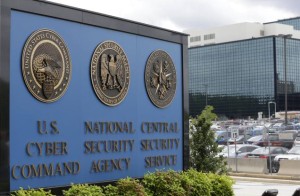Report: NSA Collecting E-Mail and IM Contacts Globally
WHISTLEBLOWING - SURVEILLANCE, 21 Oct 2013
Melanie Eversley & Byron Acohido - USA Today
- The agency reportedly is collecting data from overseas points
- Many of the contact lists belong to Americans
- NSA reportedly is collecting data to assess relationships between people
Oct 15, 2013 – The National Security Agency has been collecting contacts from people’s personal e-mail address books and instant messaging accounts in an effort to detect relationships that might be crucial to government security, the Washington Post is reporting.
The agency is collecting the data from overseas points and many of the contacts belong to Americans, the Post reports.
The Post bases its report on word from senior intelligence officials and top secret documents, including a Microsoft PowerPoint presentation, provided by former NSA contractor Edward Snowden..
The majority of the contacts harvested come from Yahoo and Hotmail accounts, but others also come from Facebook, Google and unspecified other providers, the Post reports. The contacts amount to a sizeable portion of the world’s e-mail and instant messaging accounts, according to the news organization.
“You need the haystack to find the needle,” the Post quotes Gen. Keith B. Alexander, NSA director, as saying in defense of the bulk collection.
No one from public affairs was available to discuss the allegations at National Security Agency headquarters in Fort Meade, Md., Monday evening.
Senior intelligence officials say such collection would be illegal if done from facilities in the United States, according to the news organization. The NSA, however, has avoided that error by intercepting contact lists from points “all over the world,” one anonymous official tells the Post.
Large technology companies use data centers around the world to ease the loads on their servers in the United States, the Post reports.
A Google spokesman told USA TODAY the Internet company had not heard of the e-mail/instant messaging program.
“We have neither knowledge of nor participation in this mass collection of webmail addresses or chat lists by the government,” the company said in a statement e-mailed to USA TODAY.
A Microsoft spokesman said the company does not provide the government with such data.

The National Security Agency (NSA) headquarters at Fort Meade, Maryland.
(Photo: Saul Loeb, AFP/Getty Images)
“Microsoft does not provide any government with direct or unfettered access to our customer’s data,” spokesman Dominic Carr said in an e-mail. “We would have significant concerns if these allegations about government actions are true.”
Yahoo’s response was similar in an emailed statement. “We are not aware of nor have we participated in the alleged mass collection of user data by the government,” the statement read.
A Facebook spokesman said the company did not know of or assist with the alleged collection of contacts.
The American Civil Liberties Union called the program a breach of Americans’ rights.
“Today’s revelation further confirms that the NSA has relied on the pretense of ‘foreign intelligence gathering’ to sweep up an extraordinary amount of information about everyday Americans,” Alex Abdo, staff attorney with the ACLU National Security Project, said in an e-mail to USA TODAY. “The NSA’s indiscriminate collection of information about innocent people can’t be justified on security grounds, and it presents a serious threat to civil liberties,” he said.
The revelations may be adding to consumer resolve not to take online privacy so blithely. Antivirus companies ESET and AVG both said consumer interest in privacy tools have been on the rise since the Snowden disclosures began.
“People are being shocked into taking action,” says Jim Brock, AVG’s vice president of privacy products. “People are starting to realize that they do have some measure of control and they’re staring to act on that.”
Stephen Cobb, a security researcher at ESET, says many consumers now realize the personal disclosures shared on social media and web apps can get tapped by government snoops.
“I’m pretty sure consumers are adjusting their online behaviors as these round of disclosures roll on, particularly in the area of use of social media,” Cobb says. “None of these revelations have had a positive impact on how people view the Internet and technology.”
The silver lining may be more consumer support for online services that do a better job of respecting consumer privacy, akin to Europe’s approach of giving consumers much more control over their online personas.
“People are starting to understand what this means to them, and that’s good,” says Brock. “It’s time to move from shock and awe to taking more responsibility for our own data and doing a better job at being our own data stewards.”
Contributing: Alistair Barr in San Francisco
DISCLAIMER: The statements, views and opinions expressed in pieces republished here are solely those of the authors and do not necessarily represent those of TMS. In accordance with title 17 U.S.C. section 107, this material is distributed without profit to those who have expressed a prior interest in receiving the included information for research and educational purposes. TMS has no affiliation whatsoever with the originator of this article nor is TMS endorsed or sponsored by the originator. “GO TO ORIGINAL” links are provided as a convenience to our readers and allow for verification of authenticity. However, as originating pages are often updated by their originating host sites, the versions posted may not match the versions our readers view when clicking the “GO TO ORIGINAL” links. This site contains copyrighted material the use of which has not always been specifically authorized by the copyright owner. We are making such material available in our efforts to advance understanding of environmental, political, human rights, economic, democracy, scientific, and social justice issues, etc. We believe this constitutes a ‘fair use’ of any such copyrighted material as provided for in section 107 of the US Copyright Law. In accordance with Title 17 U.S.C. Section 107, the material on this site is distributed without profit to those who have expressed a prior interest in receiving the included information for research and educational purposes. For more information go to: http://www.law.cornell.edu/uscode/17/107.shtml. If you wish to use copyrighted material from this site for purposes of your own that go beyond ‘fair use’, you must obtain permission from the copyright owner.
Read more
Click here to go to the current weekly digest or pick another article:
WHISTLEBLOWING - SURVEILLANCE:
